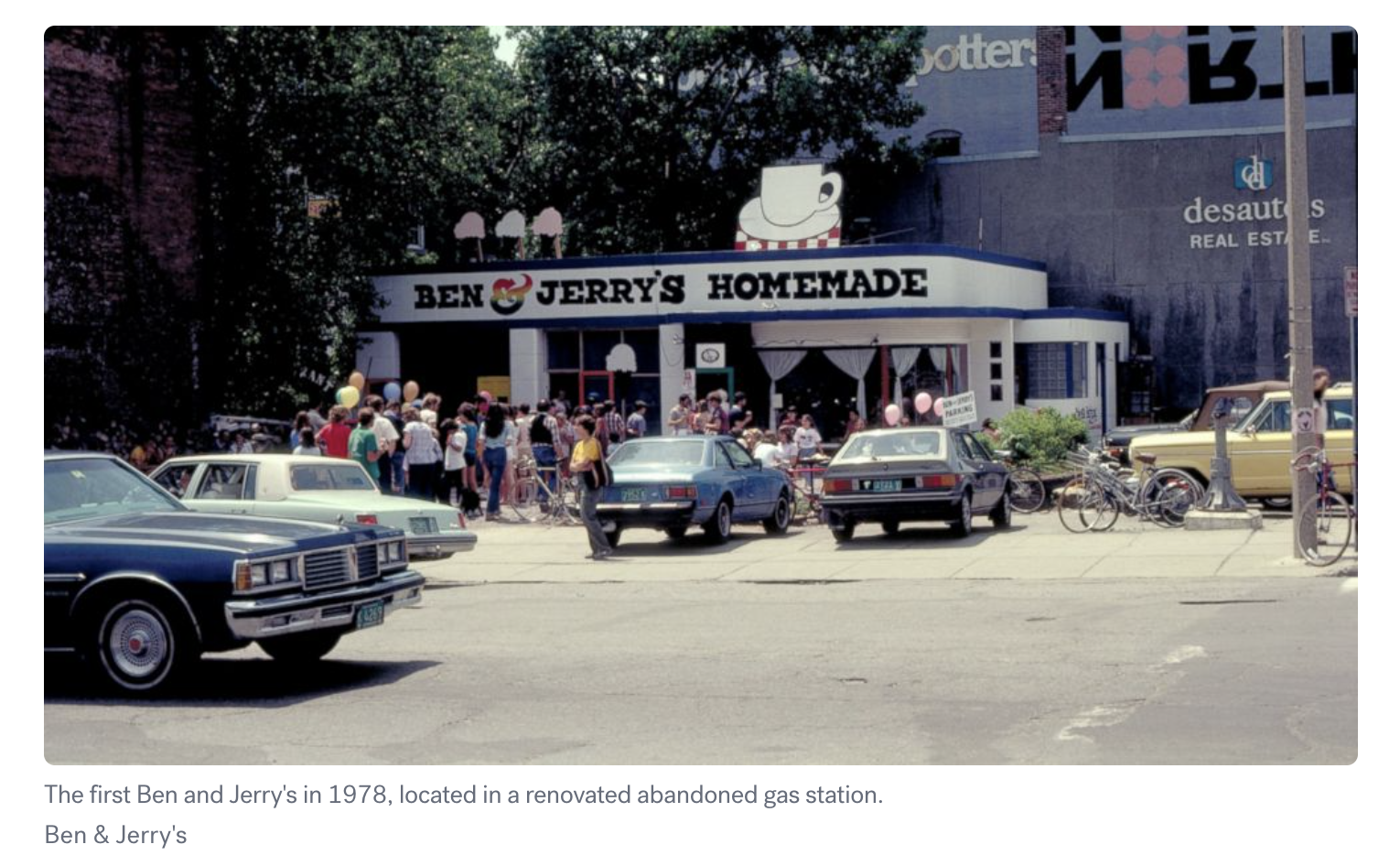Ted Talks | January/February 2025: What are we talking about when we talk about Excellence?
In the latest Ted Talk, Head of School Ted Graf explores the idea of excellence and why we may be hesitant to name it, despite seeing it in action daily.
A year or two after I graduated from the University of Vermont, my parents gave me ten shares of Ben & Jerry’s stock. Even though I had no idea what it meant to own stock, they knew the gift would be a hit, and they were right. I loved the ice cream (Chunky Monkey, please!); I loved hanging out at their original store (see the renovated gas station from 1979 in downtown Burlington); and I loved the company’s values. I also admired their edgy marketing campaign aimed at Haagen Dazs (who was then owned by Pillsbury) – “What’s the doughboy afraid of?”

In addition to their eye-catching question about fear, I have been researching Ben & Jerry's commitment to excellence and their values. Like Ben & Jerry's approach to delicious and memorable ice cream, why can't Headwaters' approach to education embody kindness and deep, intellectual excellence? Why can't we educate children to be both smart and compassionate?
Over the past two months, I have witnessed memorable projects, assignments, student conferences, events, performances, and initiatives, and I have arrived at the conclusion that we might be afraid of using the word excellence. Don’t get me wrong; I believe the students and guides are eager to make excellent work, but I think we (guides and parents) are squeamish about calling it excellent. To reinforce my point, below are three examples that exemplify many of the qualities we’re seeking in excellent student work: originality blended with problem-solving; evidence of self-teaching and intrinsic motivation; and a balance between student voice and student choice.
The Early Elementary Owls Class on our Creek Campus has been hard at work on The Shelter Project, combining research and creativity to explore the diverse types of shelters from around the world. They have been working in the classroom, but doing this project in the Bird’s Nest, our nature preserve across the street from campus. Through this hands-on project, students are learning about architecture and key design principles while honing their creativity, problem-solving, and teamwork skills. They’ve discovered how to share ideas, communicate effectively, and collaborate to bring their unique creations to life. | |
The Middle and High School Winter Concert (held at Austin Central Public Library) brought together student and faculty collaboration to create and recreate original music work, exchange instruments, and display poise, grace, and joy from the stage. The students played a wide variety of music, from a groovy cover of Soulive’s version of The Beatles’ “Eleanor Rigby” by the 9th and 10th grade Jazz Band, to the Middle School Elective’s rendition of “Colors” by the Black Pumas where students all performed using different instruments than the song before, and a classic, yet funky, jazz cover of Horace Silver’s “Jody Grind” featuring our 11th and 12th Grade Jazz Band, and everything in between. | |
In our Young Children’s Community (YCC), a two-year-old is working with a material that encourages one-to-one correspondence. There are 15 wooden dowels and 15 holes in a metal lid screwed onto a glass jar. Each dowel is dropped into one hole at a time and counted as one. The young child is laser-focused to precisely match up each dowel so that it will fall into the metal hole. This attention to detail calls for patience, eye-hand coordination, problem-solving, persistence, and a great deal of concentration. |
Here are some of my hypotheses about our relationship with excellence:
- First, when schools, especially private schools, talk about academic excellence it is often code for compliance and conformity. In other words, if you follow this (usually unstated) formula, you and your work will be excellent (as defined by some outside authority). Since Headwaters prides itself on creativity and independence, that could feel threatening.
- Second, I wonder if we choose to adopt academic excellence as one of our values, it might mean we are buying into a system that prioritizes extrinsic rewards over our approach which prioritizes intrinsic motivation.
- And third, our school, since its inception, has always had a proud, counter-cultural streak (like Ben & Jerry’s), and, for some of us, talking about excellence might signal a deliberate departure from our counter-cultural roots. In other words, if we value excellence, we’re meeting conventional and standardized measures of success. I think we may be afraid of saying we’re striving for excellence because it also means that we no longer are original, unique, or counter-cultural.
But what if we lay claim to a uniquely Headwaters vision of excellence? What if our vision of excellence values curiosity, originality, understanding, courage, and application of knowledge? What if what we are already doing is excellence, but we just haven’t called it such?
On Friday, February 14, all faculty will gather on the River Campus in cross-campus groups to wrestle with these ideas and to help define excellence for us from the classroom out. Once we have synthesized our ideas, we’ll share them with all of you.
In the meantime, if you have an insight or idea about Headwaters’ approach to academic excellence and want to share it, jot it down in an email and send it to academicbrightspots@headwaters.org.
Springs Campus
List of 1 items.
-
18 months to Pre-K
Creek Campus
List of 1 items.
-
Elementary School
River Campus
List of 1 items.
-
Middle & High School
As a 501(c)3 non-profit school, Headwaters School does not discriminate because of race, color, creed, national origin, religion, gender, age, disability, veteran status, sexual orientation, or any other classes protected by federal, state, or local law in its admissions, financial aid, hiring, or board membership processes.




